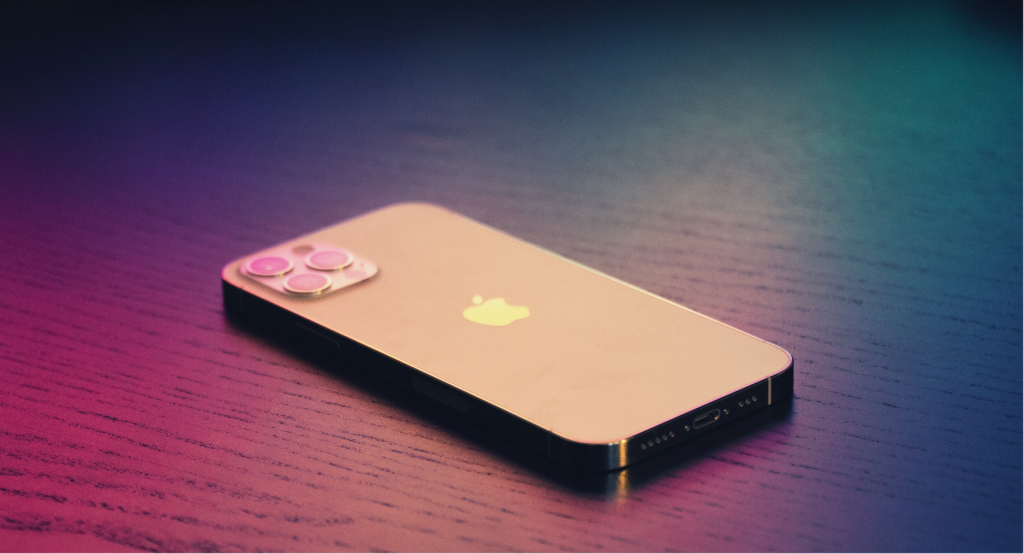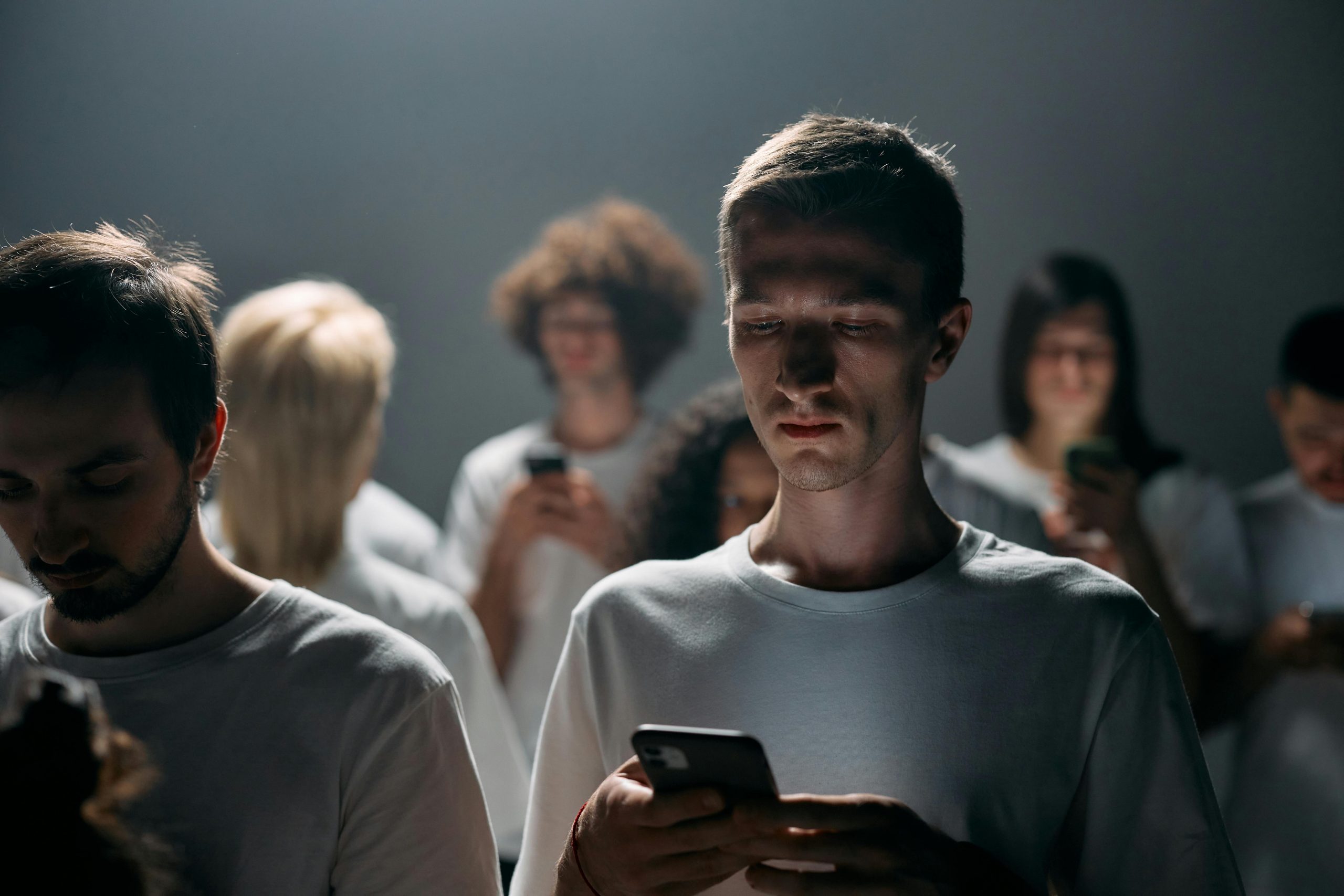Let me start by saying there are many people out there who, for many reasons, can’t stay focused and concentrated for a longer time. If you’re one of them, this blog post is not for you. However, if you’re someone having a hard time concentrating and gets distracted by just about anything, welcome to the team. I’m like that too, and for the longest time, I didn’t know why. Turns out, I just needed to change my relationship with my phone and social media. Changing this improved not only my focus but also my career. For those wanting to learn more about the why behind this correlation, keep reading. For those only interested in the 5 easy steps to fix it, scroll to the very bottom!
Social Media Changes the Architecture of Your Brain
Although it might seem as though endless scrolling is nothing else than a waste of time, it’s actually proven to have a longer-lasting negative effect than that. We are constantly bombarded by information and stimulus that our brains have to organize and digest, taking valuable energy we could put to better use. This leads to a constant fight-or-flight mode causing chronic stress and decreased mental well-being. So much so that a UK study found that 27% of teens consuming social media for hours every day were suffering from psychological stress. Only 17% of those using it less frequently suffered the same. That’s 10% less suffering, only because they don’t use it as often. Imagine how they would feel if they didn’t use it at all. How would you feel if you didn’t use social media?
Improved Concentration Equals Improved Success
In one of my previous posts, I mentioned Cal Newport and his book, but I didn’t mention his valuable TED Talk, where he talks about the lack of deep work and all findings he has come across during his years involved in the topic. See, Cal Newport is not only a great speaker but also the author of 8 books, a computer science professor at Georgetown University, and one of the few people managing to actually get his job done in about 8 hours. Something most Americans and Europeans only dream of. His secret? Deep work.
Cal Newport practices what he preaches and has seen firsthand how his career improved by removing all these small distractions that we think don’t have any impact at all but very much do. Even the smallest notification will take about a minute or more to notice, read, react to, find your way back from, and continue with what you were doing. Now imagine you have 50 distractions during a work day (you probably have much more). That’s a whopping 50+ minutes. So if you thought the small notifications were just that – small and insignificant – think again.
What is Deep Work, and What Does Social Media Have to Do With It?
Deep work is when you are entirely focused on that one task you are carrying out. This means working on that project and leaving your phone out of reach. You have no notifications popping up, and no part of your brain wonders if anyone has messaged you. To truly reach this level of focus, your brain needs to be 100% present in the here and now.
Let’s take a moment to reflect on this for a second. When was the last time you were 100% focused on one task for longer than an hour without reaching for your phone, checking any messages on your computer, or having that itch to see if there’s “something important” you’ve missed? Knowing full well that those messages on Instagram really aren’t that important?
So, Why Is It so Hard for Us to Reach this Level of Concentration?
Some say it’s because we are constantly connected to everything, forcing our brains to multitask, making it impossible to think about one thing only. Others think it’s because we are so connected to work hours after getting home which negatively influences our sleep, affecting concentration and brain function. According to US and UK doctors, it all comes down to stress. Stress is firmly rooted in social media platforms feeding us with FOMO, inadequacy, and overall anxiety. The silver lining is that all these emotions are self-inflicted, meaning you can also rewire your behavior and see a drastic change for the better.
How Do I Fix My Toxic Social Media Relationship?
Many people talk about how to have a healthy relationship with the digital world. What is important to remember, though, is that what works for one person might not necessarily work for you. I’ve seen every trick in the book, from buying an old Nokia phone to leaving the phone in the car or office, and neither sounds very appealing to me. The tricks I’ve used all come down to regaining the power over my phone. I got to a point where I felt that my phone and the notifications had control over me when it really should be me being in control of the phone. I decided to adopt some easy techniques to regain that lost control. If you do all or some of these 5 things, I assure you that your relationship with the digital world will be much healthier, and mental breaks without stimuli will be a thing again, leaving you with plenty of brainpower to more efficiently and produce quality work.
My 5 Tips for a Life Free from Phone Distractions:
- Mute is your new BFF.
Turn your sound and vibration off so you don’t hear or feel any distractions. - Make sure you don’t see the flashing LED light.
Whenever you sit down to work or with a friend, leave your muted phone in your bag or face downwards so you can’t see the blinking LED light. - Have your apps send you reminders to log off.
Set a reminder on Instagram and all other apps you can. Mine is set to 10 minutes because that’s where I feel I enter the “endlessly scrolling” phase - Schedule automatic “do not disturb” mode.
Take advantage of your phone’s “Do not disturb” function and have it scheduled so it turns on automatically. Mine is activated 2 hours before I go to bed and turned off an hour after I wake up – automatically. - Leave your phone behind.
Go out on a walk without your phone. Leave the phone in a different room when working or studying. Forget where it is all together when you’re meeting your friends. Not knowing where your phone is, kills the urge to constantly take photos and record every moment and lets you stay present in what you’re actually doing.



